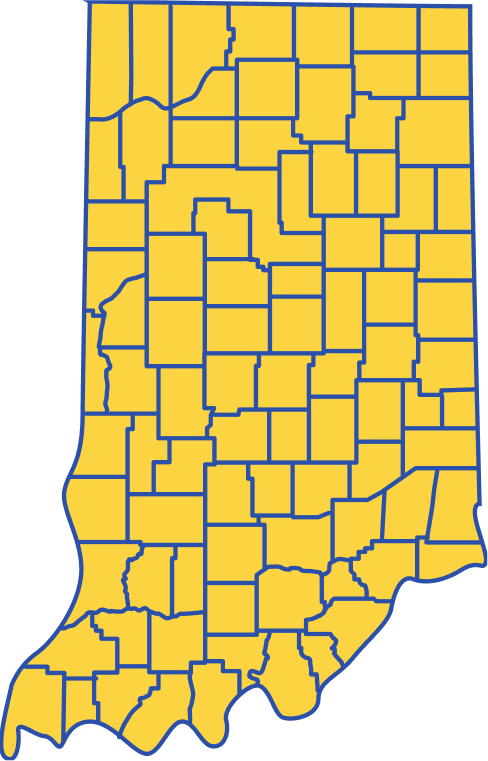At Primecare, we know caring for a loved one at home is a deeply personal decision, one made from love, commitment, and the belief that being at home is often the best place to heal, grow, or age in comfort. But what many families don’t realize is that while Structured Family Caregiving (SFC) programs exist to support this choice, the rules and benefits can vary significantly depending on your state.
Whether you’re helping a parent, spouse, or child, understanding how SFC works where you live is the first step toward getting the right kind of support.
Let’s walk through what Structured Family Caregiving is, why it matters, and how it differs in two of the states Primecare Home Care serves Georgia and Indiana.
What Is Structured Family Caregiving (SFC)?
Structured Family Caregiving is a Medicaid-funded program that allows qualified family caregivers who live with and provide daily care to a loved one to receive training, care coordination, and a weekly financial stipend through an approved service provider. This support helps ease the emotional and financial strain many caregivers face.
Caregivers in the program are not employed by the service provider or Medicaid. They do not receive traditional employee benefits. Instead, they receive a stipend based on the care recipient’s assessed level of need, issued through an approved SFC provider, not directly by Medicaid.
Each state defines its own program structure, eligibility criteria, and oversight requirements , which is why understanding your state’s specific rules is essential.
Why the Differences Matter
One family in Georgia might learn that only adult children or in-laws can serve as paid caregivers, while a family in Indiana may find that even a spouse can qualify. These kinds of details directly impact whether a household qualifies for the program and how support is provided.
That’s why working with a provider who understands your state’s structure and is approved by your state’s Department of Community Health (or managed care entities, where applicable) is so important.
Georgia vs. Indiana: A Side-by-Side Comparison of SFC
Here’s a breakdown of how SFC is structured in Georgia and Indiana, including eligibility, caregiver requirements, and how payments are administered:
| Program Feature | Indiana (IN) | Georgia (GA) |
| Program Type | Delivered through Managed Care Entities (MCEs) and Medicaid | Delivered through Medicaid only, via DCH-approved providers |
| Participating Health Plans | Anthem, Humana, United Healthcare | N/A |
| Eligible Age Groups | All ages– Over 60: PathWays Waiver- 59 and under: Health & Wellness Waiver- TBI: All ages with TBI as primary diagnosis | 18 and older for caregiver, and 21+ for a patient |
| Children’s Eligibility | Must have a physical or functional disability (e.g., CP, trach, G-tube, paralysis, etc.) Autism alone does not qualify | Children under 18 are not eligible for Georgia’s SFC |
| Caregiver Relationship | May be any relation, including spouse | Must be a biological relative or related by marriage (e.g., daughter-in-law); spouses are not eligible |
| Caregiver Employment | Caregiver may hold outside employment | Caregiver cannot have other paid employment |
| Residency Requirements | Must live with the care recipientCan be same address or adjoining units (e.g., duplex, apartment) | Must reside at the same physical address as the care recipient |
| Participants per Household | Up to 4 participants allowed per residence | Typically limited to 1 participant per caregiver |
| Background Check Requirements | National background check requiredFingerprinting not required | Requires fingerprinting and background screening |
| Visits and Oversight | Semi-quarterly home visits and routine contact via MCE | Semi-annual home visits and monthly check-in calls |
| How Payments Work | Caregiver receives a stipend through an approved provider partnered with a Managed Care Entity | Caregiver receives a stipend through a Georgia DCH-approved provider (not from Medicaid directly) |
| Training and Support | Training, education, and RN/care coordinator oversight provided by provider | Includes training, care coordination, and support from an RN and care coordinator, per DCH regulations |
What Do Caregivers Receive?
In both states, qualified caregivers enrolled in the SFC program through an approved provider may receive:
- A weekly stipend, based on the level of care needed
- Ongoing support and care coordination
- Access to training and education resources
- Regular home visits and check-ins for oversight and care planning
Again, caregivers are not employees of the provider. They are essential participants in the Medicaid member’s care team and are supported through a structured framework but do not receive benefits like insurance or PTO.
How to Get Started
To participate in the SFC program, caregivers must enroll through an approved provider. In Georgia, that means a provider approved by the Department of Community Health. In Indiana, it must be a provider connected with one of the state’s Managed Care Entities (MCEs).
If you’re unsure whether you or your loved one qualifies, a care advisor can walk you through:
- Waiver eligibility (e.g., EDWP (formerly CCSP), PathWays, TBI, Health & Wellness)
- Income and clinical criteria
- Required documents for enrollment
- The onboarding, training, and background check process
We’re Here to Guide You — The Right Way
At Primecare Home Care, we believe family caregivers deserve more than appreciation, they deserve training, guidance, and support they can trust. Our team is committed to clear, honest communication and full compliance with each state’s policies.
Whether you’re in Georgia or Indiana, we’ll help you understand your options, navigate the paperwork, and make sure you’re never left guessing.
Have questions about SFC in Georgia or Indiana? Our care team is here to guide you.
Disclaimer: This material is for advertising and marketing purposes only and does not create any entitlement to services or benefits. Participation is not guaranteed. Interested individuals should contact PCHC for more information about eligibility.





